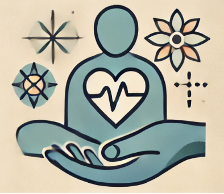
Clinician Spotlight: Dr. Veronique Lee, PsyD
An inside look into the minds at Mind Matters
What brought you to the field of psychology?

I’ve always enjoyed working with kids. Initially, I wanted to become a teacher, but taking psychology classes in high school and college helped me realize that I wanted to pursue being a psychologist. My interest in psychology comes from a desire to learn about people’s stories and support their growth and development. In college, I majored in human development and focused on working with underserved youth, serving as a youth worker with children ages 4-18 with the Tenderloin After School Program. This solidified my passion for serving underserved populations.
How did you develop your passion for assessment?

This interest developed later in my career. At first, I wanted to be a therapist. However, during my doctoral program, mentors encouraged me to explore child assessment. Through practicum experiences, I found assessments fascinating, and also invaluable in understanding children more deeply. Information gleaned from assessments helped me determine appropriate placements, such as school or residential programs, and ensure kids received the proper support. I focused on helping caregivers understand their needs and strengthening the systems that support youth.
What are values that are important to you in your assessment work?
I take a collaborative, strength-based approach, staying curious about the client, their family, and their unique talents and interests. I ask both parents and clients about their strengths and what they enjoy, reflecting back ways these can help them achieve their goals or navigate challenges. My goal is to meet families where they are, addressing their needs and ensuring they feel supported. I prioritize collaboration with everyone involved in supporting the youth—parents, teachers, tutors, schools, and social workers—by asking for their input and any specific questions they’d like the evaluation to answer. In providing feedback, I emphasize the child’s strengths alongside areas for growth, helping to build their self-esteem while addressing their challenges.
How do you keep a child’s cultural context in mind?

By staying curious. I ask thoughtful questions about the family, the child, their background, and lived experiences. I strive to understand their unique norms, beliefs, and practices while considering how these shape their needs. This helps me identify the most relevant resources and provide support that aligns with their values and experiences.
What drew you to working in private practice at Mind Matters?
I’ve always worked in larger agency settings with teams, which I find rewarding. So I appreciate being part of the team at Mind Matters where I can consult with others and learn from their perspectives. I especially enjoy listening to case presentations and gaining insight into others’ thought processes. Mind Matters also provides a unique opportunity to focus solely on assessment, with flexibility to shape the process to meet the client’s needs.
What clients do you see in private therapy practice? What is your theoretical orientation?
Yes, I have a separate private practice that’s not affiliated with Mind Matters. There, I work with children (as young as 4), adolescents, and adults, offering individual therapy, family therapy, and parent coaching. As an experienced play therapist, I specialize in helping children and adolescents with a range of issues, including anxiety, depression, ADHD, trauma, behavioral challenges, and family stressors. I also have extensive experience working with high-risk youth, including those dealing with suicidal ideation or self-harm.
For adult clients, I address concerns such as relationship and work stress, as well as complex trauma. My approach is integrative, drawing from family systems theory, psychodynamic principles, and cognitive-behavioral techniques. Additionally, I incorporate DBT interventions when working with high-risk adolescent and adult clients.
What are some things you enjoy doing when you’re not working?
I enjoy dancing and taking dance classes, as well as baking and sharing homemade treats with friends and family. I also have a 12-year-old, and spending time with my family is something I truly cherish.
______________________________________________________________________
Get a Psychoeducational Evaluation for Your Child in Berkeley or San Francisco, CA
Interested in working with Dr. Lee and any of our other dedicated Licensed Psychologists? Our comprehensive Psychoeducational and Neuropsychological evaluations take a 360 degree view, so that we can better help parents understand their child and the accommodations and interventions they need to thrive.
- Reach out to schedule an appointment.
- Schedule your child’s evaluation at our Berkeley office or San Francisco office.
- Learn more about your child so you can support them on their journey.
Other Services We Offer in Berkeley & San Francisco
In addition to psychoeducational and neuropsychological evaluations, we offer neurodevelopmental screenings. when your child needs a targeted approach. If you aren’t sure what next step to take, consider a parent guidance session. Our clinicians attend school meetings for our clients too.
